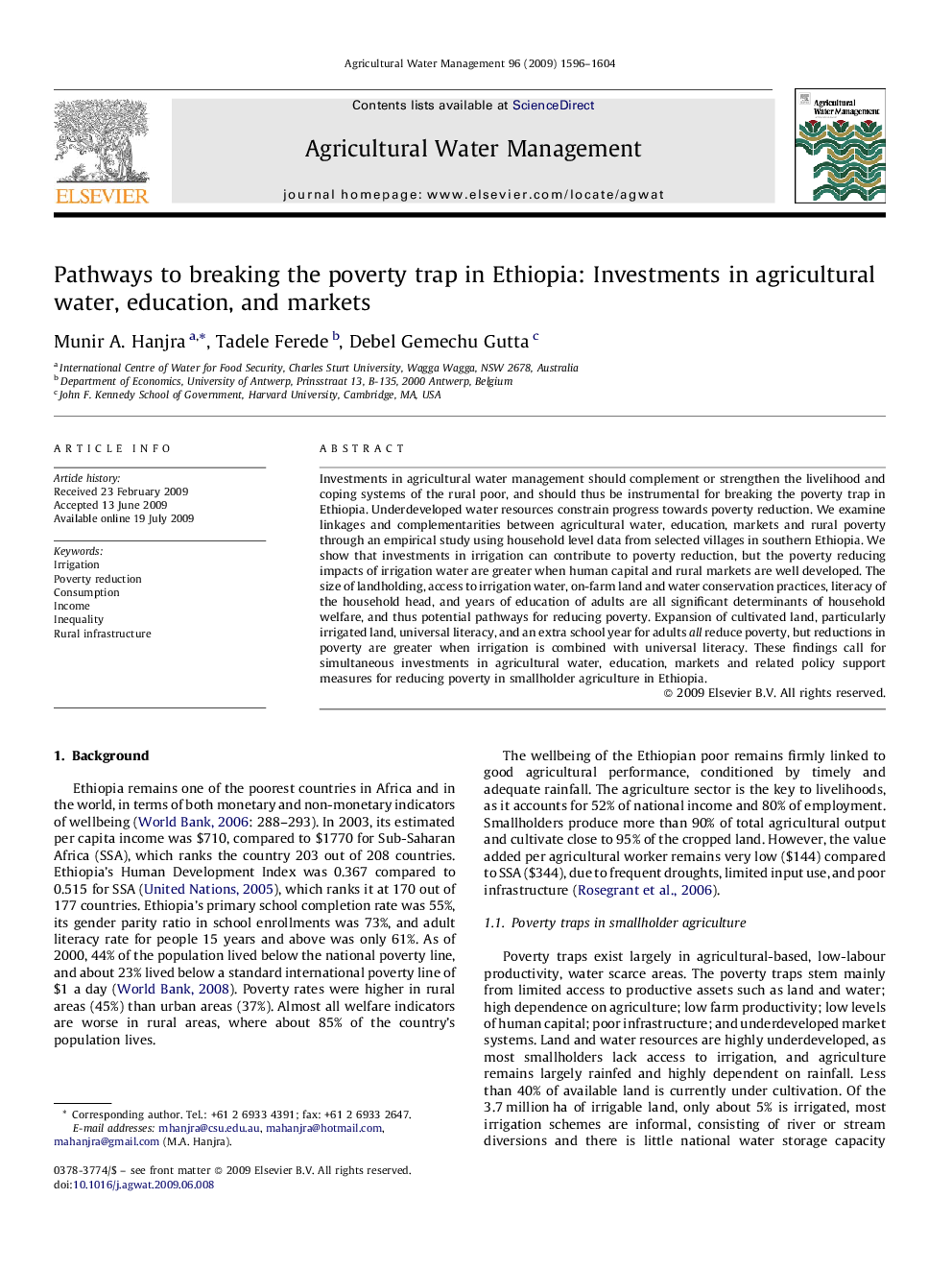| Article ID | Journal | Published Year | Pages | File Type |
|---|---|---|---|---|
| 4479615 | Agricultural Water Management | 2009 | 9 Pages |
Investments in agricultural water management should complement or strengthen the livelihood and coping systems of the rural poor, and should thus be instrumental for breaking the poverty trap in Ethiopia. Underdeveloped water resources constrain progress towards poverty reduction. We examine linkages and complementarities between agricultural water, education, markets and rural poverty through an empirical study using household level data from selected villages in southern Ethiopia. We show that investments in irrigation can contribute to poverty reduction, but the poverty reducing impacts of irrigation water are greater when human capital and rural markets are well developed. The size of landholding, access to irrigation water, on-farm land and water conservation practices, literacy of the household head, and years of education of adults are all significant determinants of household welfare, and thus potential pathways for reducing poverty. Expansion of cultivated land, particularly irrigated land, universal literacy, and an extra school year for adults all reduce poverty, but reductions in poverty are greater when irrigation is combined with universal literacy. These findings call for simultaneous investments in agricultural water, education, markets and related policy support measures for reducing poverty in smallholder agriculture in Ethiopia.
